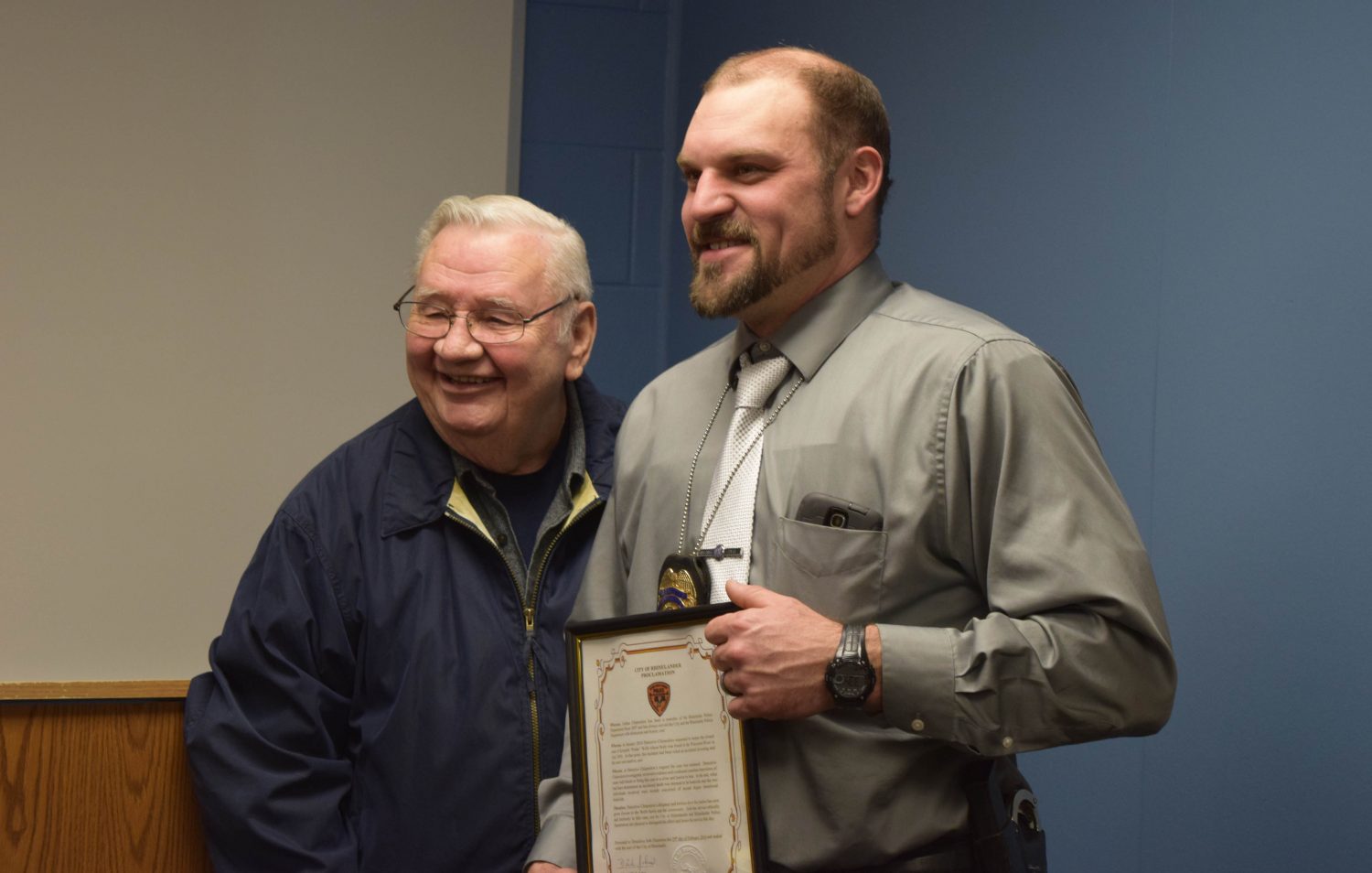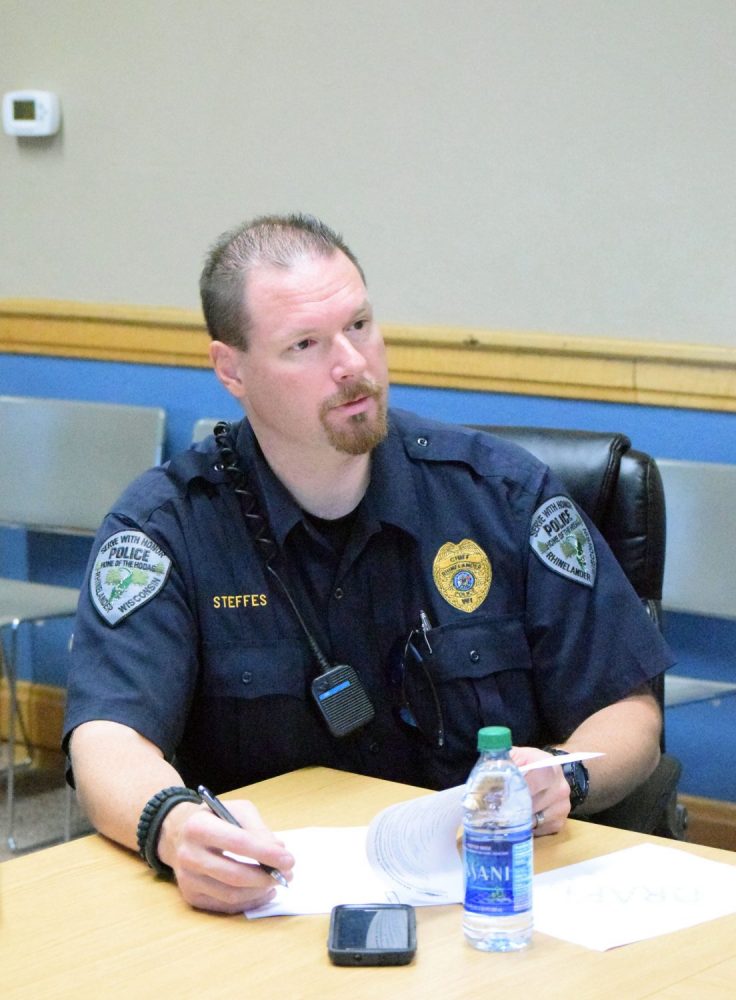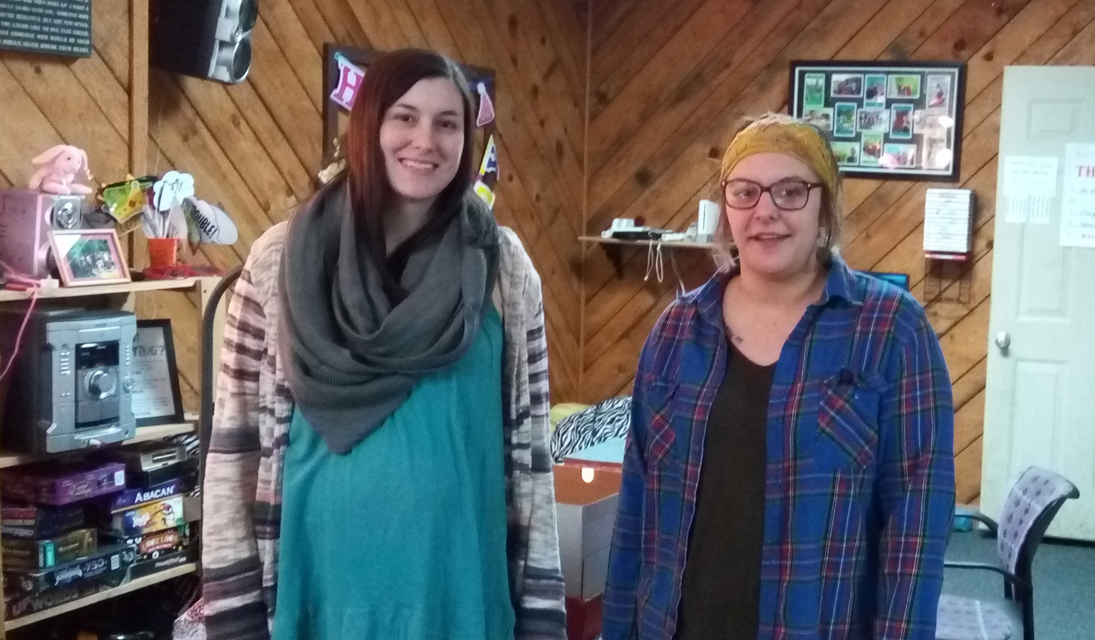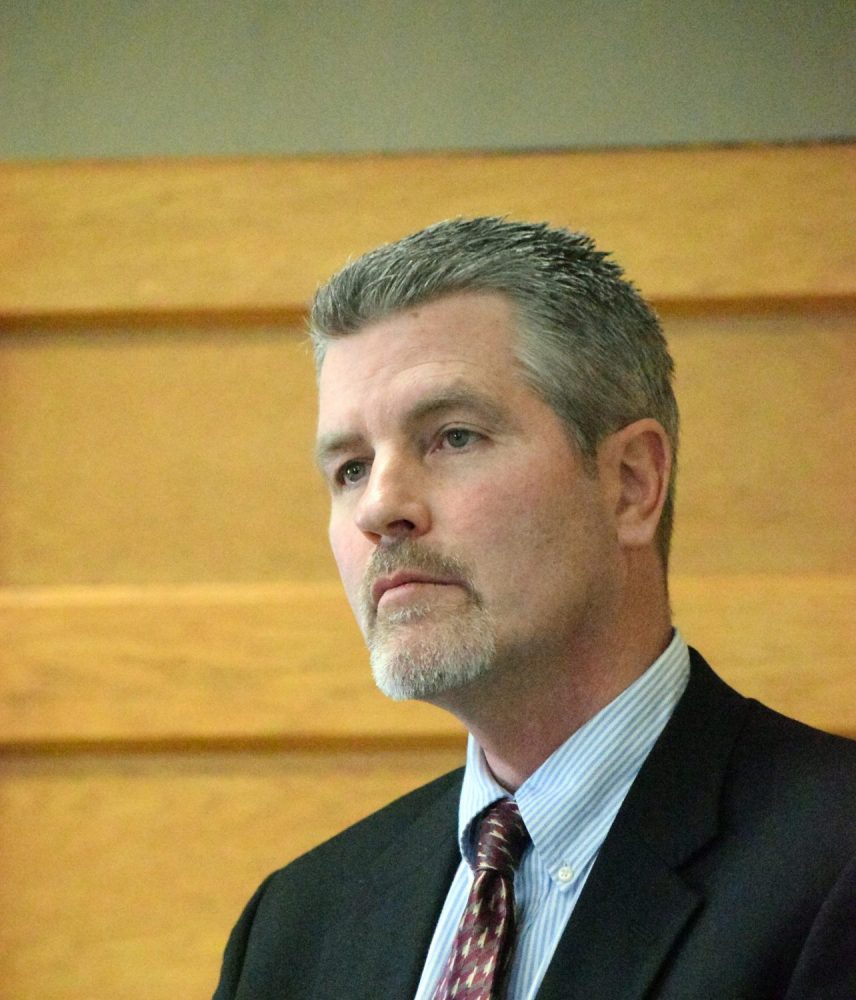Same story, different ending
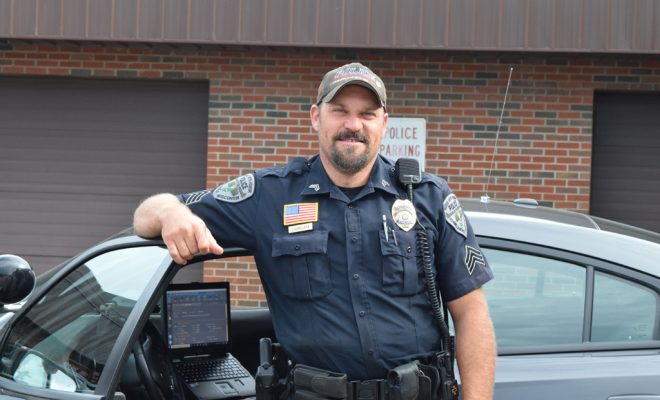
Rhinelander Police Department recovery coach program takes innovative approach to law enforcement
By Eileen Persike
Editor
Rhinelander Police Department Detective Sergeant Josh Chiamulera knew something about his job had to change. The realization hit him about four years ago as he was being repeatedly dispatched to incidents involving the same people, the same drug and alcohol-related complaints.
“I guess it kicked off when writing tickets and arresting people repeatedly just wasn’t doing anything, and I thought, man, there’s got to be something different we can do,” Chiamulera said. “So I just took it upon myself to not write tickets and not arrest people and instead start working with them.”
They were people who wanted to make a change away from drugs and alcohol, but didn’t really know where to start. In the beginning, Chiamulera said, it was one or two people and a daily commitment.
“I would go to their houses or their apartments,” he explained. “Just show up and talk with them; start getting them to be comfortable with me.” The goal was simple: separate the drugs from the user. Getting to that point, however, was not. It involved physically searching homes and apartments, looking for drugs while reassuring the occupants he was not there to bring them to jail.
“I’m not going to arrest you…you just have to get this out of your house,” Chiamulera said he would tell them. “You’re not doing [drugs] today. And then tomorrow I’ll show up and we’ll go through this whole thing again.”
Eventually, the folks he was working with would allow the officer to search the home and take their drugs, or even just had them over willingly, saying, “I know you’re going to take this anyway.”
And then they began calling him.
Maybe they messed up and bought drugs and then had a change of heart.
“That was a big ‘Aha moment’ for me; that this really could work for people. Pretty soon people would show up at police department and say, ‘go ahead and take it.’ And it’s not just marijuana – I’m talking meth, cocaine, heroin.”
“He’s very passionate about the subject,” said Rhinelander Police Chief Lloyd Gauthier. “It’s because of the relationship they built with Josh stopping over, talking with them, [asking] ‘how are you doing.’ I can’t say enough about the heart Josh has for people – especially people in those positions.”
Chiamulera said he believes he has had more drugs turned into him from willing people, than officers have taken off the street in a given year. Word of that success spread.
Recovery coaches
A representative of Marshfield Clinic Health System reached out to Chiamulera because she had heard about the work he was doing with people in the community with addiction problems. Marshfield Clinic began its AmeriCorps Recovery Corps program in 2017, which trains recovery coaches. Chiamulera received funding from the city and together with the Oneida County Public Health Department, hosted a recovery coach last year. The cost to the city of Rhinelander for the recovery coach is about $8,000 per year.
“This is a very innovative program. Not many communities do this and we’re very proud of the Rhinelander Police Department for venturing out and doing this program,” said Meagan Pichler, interim manager-community health.
The recovery coaches are not certified professionals, Pichler said, but they do go through an extensive training program and are there in a supportive capacity. They are part of the national AmeriCorp volunteer program so they work 1,700-2,000 hours per year and receive a stipend as opposed to a salary.
“We look for someone who is driven, willing to lend a listening ear, has empathy and is really just there as a support for their clients. Anyone who has that ability to keep an open mind, someone who is very resourceful and can connect the clients with the necessary needs they present,” she explained. Many are in recovery themselves, or have been closely affected by substance abuse.
Ray, a 55-year old city resident, is a recovery coach client. In and out of in-patient treatment at Koinonia in Rhinelander, Ray said he and his fiancée were going through some tough times about a year ago. He had been injured and had a lot of free time on his hands and “went about things in the wrong way.” He said he doesn’t know where he would be today if he didn’t have Chiamulera and Jen, his recovery coach, in his life.
“Josh and Jen stepped up to the plate and said, ‘we would like to help you,’” Ray said. “I can’t say enough about them.”
Chiamulera said the recovery coach program works because coaches can quickly reach out and become a lifeline for people who are struggling.
“We’re able to grab our coach and go to someone’s home and introduce them and say, ‘this person that you see right here, is who you can talk to.’ It’s a big difference from saying, here’s a phone number, call them for help – then walking away.”
Pichler says the Recovery Corps has proven it is needed in the community.
“Especially in the Northwoods, where services may be few and far between, so the recovery coaches allow for that connection to be made between clients and services. They are really the liaison that keeps the client moving through their recovery journey.”
Chiamulera’s work with the recovery coach program fits within the police department’s mission, said Chief Gauthier.
“Our community struggles with addiction and for us to be able to offer a service to these people is another example of how we want to work in partnership with our community.”
People who are struggling can see their lives, relationships, jobs go into a downward spiral, perhaps culminating with a law enforcement call. Gauthier said helping people on the “front end,” with a recovery coach building a relationship with them is better for everyone.
“Anytime we can defer one person and get them into treatment – it’s hard to put a dollar amount on that other than it could be very costly for that person, for the system, for the police department budget, the human service budget,” Gauthier said. “So this is a great program to help people that are desperately struggling with an addiction and want help, and want an avenue to help themselves.”
The future of law enforcement
Gauthier said he believes the future of police work will be “more driven by the human service side of things than the penalty side of things,” evidenced by the change in the structure of the police academy. Requirements of the basic recruit academy, such as at Nicolet College, has gone from a minimum of 400 hours of training years ago to at least 720 hours, and includes learning how to deal with people in crisis.
“For years law enforcement would deal with someone in crisis the same as if he was a criminal,” Gauthier said. “That is clearly not the right environment for some people. Wisconsin law enforcement has been very progressive in recognizing we need to give law enforcement officers skills and abilities for dealing with people in crisis.”
Recruits, he said, are getting training on how to talk to people in crisis, how to de-escalate a situation and change the environment so it doesn’t become a use-of-force situation. Plus, many dispatch centers have more specific information at their fingertips than in the past, for example about whether a subject is non-communicative or doesn’t like to be touched. “Whatever additional information we can get on the front end, we can go into these situations knowing we are looking at not a bad person, but a person in need of help,” Gauthier said.
Though his approach may not have been fully accepted four years ago, Chiamulera said officers in the department have slowly grabbed onto it.
“Don’t get me wrong – there is still the need for enforcement because you do have that small percentage that don’t want to change and they probably won’t change,” he said. “And there are those that prey on that as well.”
There is always more room for success, but Chiamulera said he and recovery coach Jen have worked with around 60 people over the past five months.
“Hopefully they start to get better, looking for jobs, changing who they are hanging out with and they look back and see where they were, and say thank you.”
There is one client who has already checked all of those boxes.
“I talk about them all the time, I seriously do,” said Ray. “I thank God I met them.”
Leave a reply
You must be logged in to post a comment.

